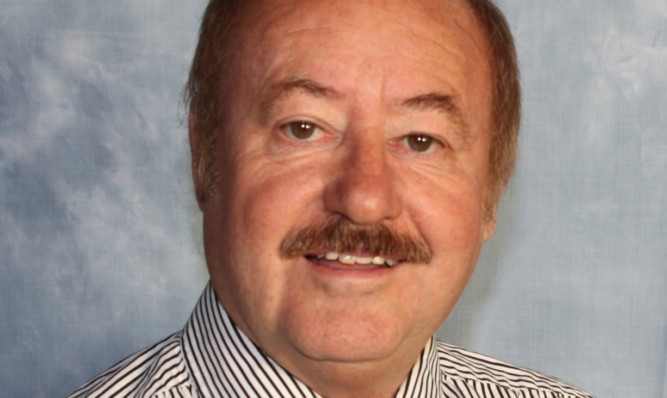New measures to tackle the sale of so-called legal highs could help save lives, a Fife campaigner has said.
Glenrothes councillor Ian Sloan, chairman of the Fife Alcohol and Drug Partnership’s New Psychoactive Substances working group, has told The Courier new legislation will make it harder for high street shops to sell such products in Fife.
It follows the Royal Assent granted to the UK Government’s Psychoactive Substance Act, which from April will provide authorities with new powers to tackle the sale and distribution of currently legal chemical cocktails.
Advertised as plant foods and bath salts, the substances are sold by retailers across the region but are often bought by young people and then consumed.
They have been linked to numerous deaths in Scotland in recent years, with side effects also including paranoia and seizures.
However, Mr Sloan is confident new powers granted to the police will help curb consumption.
He told The Courier: “This will remove the blight of having these shops on our high streets and in our shopping centres selling products which have no quality control, indication of strength or even what chemicals are present in the packet.
“Although possession will not be an offence to avoid mass criminalisation of young people prosecutions can follow from importing a psychoactive substance from a non-UK-based website.”
“Legal highs” are substances that are not controlled under the Misuse of Drugs Act but which produce similar effects to those that are, such as cocaine or ecstasy.
They are, however, illegal under current medicines legislation, which prevents them being sold, supplied or advertised for human consumption.
To bypass this, sellers often advertise them as research chemicals, plant food, bath crystals or pond cleaner.
The use of legal highs has exploded in recent years and they have proven particularly popular with young party-goers.
However, the Psychoactive Substances Act means that from April, producing or supplying any such chemical will be illegal, with anybody caught facing a prison sentence of up to seven years.
Mr Sloan added: “I earnestly hope that the enforcement of this new law will go a long way to reducing the number of tragic and unnecessary deaths attributed to using so-called legal highs very soon to be ‘illegal highs’.”
